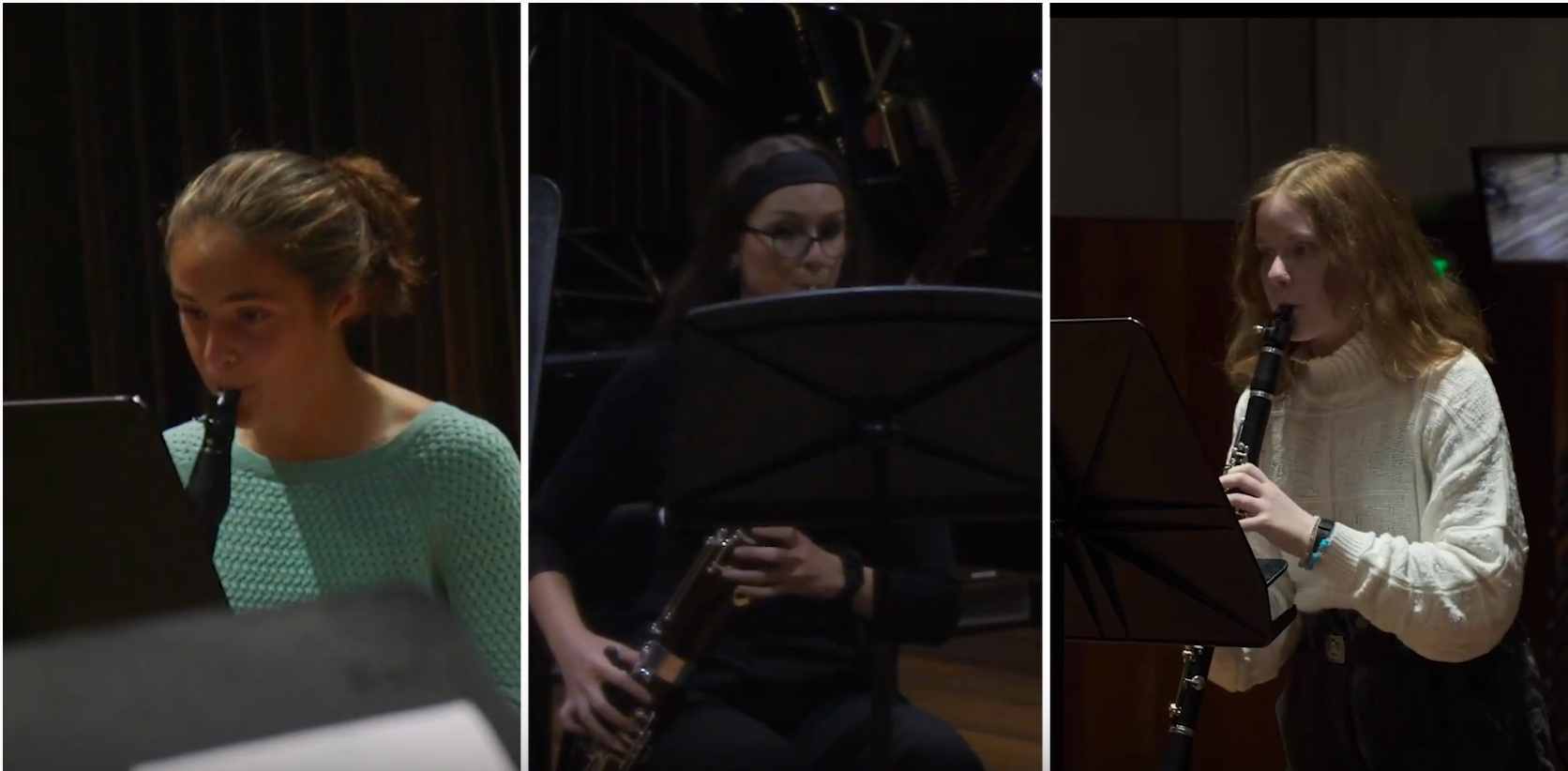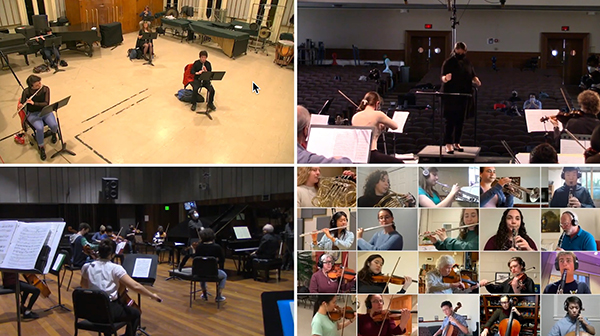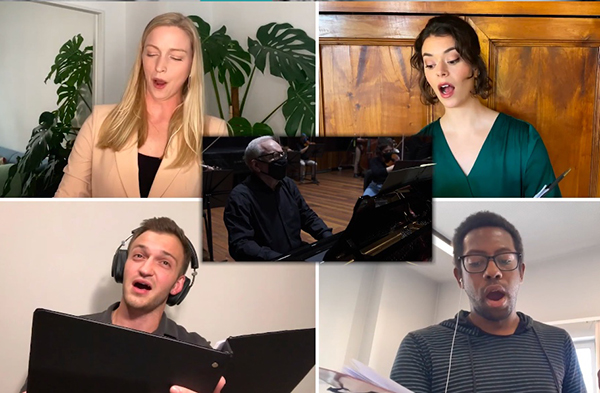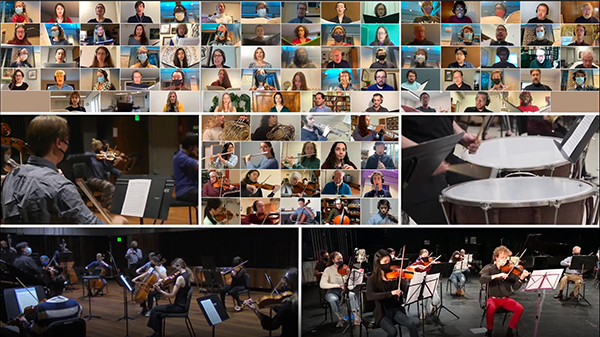Originally, Oberlin Arts and Sciences Orchestra conductor Tiffany Chang simply planned to join in the celebration of Beethoven’s 250th birthday year with an October performance of his Choral Fantasy, featuring piano professor Peter Takács on the solo part the composer himself played at its debut in a marathon concert on December 22, 1808. But after the novel coronavirus began its inexorable progress across the country in March, shuttering live concerts for the foreseeable future, a change in plans was in order.
Why not create a virtual performance instead, using the school’s sophisticated recording technology? How complicated could that be? In a Zoom conversation from Chang’s home in Taiwan, where she has been hunkering down since the campus went on break at Thanksgiving, she confessed, “I didn’t know what I didn’t know, which is how you get into these huge projects.”


“I met Rachel last fall at the Dallas Opera’s Hart Institute for professional development,” Chang said, “We talked over the summer and realized that we lead similar orchestras in universities that are connected to conservatories. I decided to combine remote and in-person participants, and include the remote instrumentalists in large tutti sections. And I needed singers.” By December 15, the performing forces totalled 200 musicians.


In addition to the locally-recorded segments, submissions were also coming in from the remote participants, whose numbers continued to increase. All that content needed to be received by the end of November so Chang could deliver the edited video the week before the December 15 premiere.
“It was a long process,” Chang said, “that ramped up intensely at the end.” Back in Taiwan, which is in a time zone thirteen hours ahead of Oberlin, she essentially went into video quarantine. “You can work from anywhere if you show up at the right time. I edited until I had to go to sleep, then got up and started again, and taught classes in between.” By her reckoning, Tiffany Chang dedicated 420 hours to the Beethoven project.
Along the way, Chang thought it was important to share content with the orchestra. “I slapped some excerpts together to let them know what they sounded like, and how they fit into the whole piece.”

“It’s a miracle that we made it through the finish line,” she said. “I can only imagine what would have happened if we had to shut down in October.” But she believes that focusing on the process rather than on the final outcome is a healthy practice for a college orchestra. “We should be able to showcase our work-in-progress so it’s not the end of the world if we have to shut down.”
For more insights into the production of Tiffany Chang’s video, watch her behind-the-scenes video here. And watch the completed project here.
Published on ClevelandClassical.com December 22, 2020
Click here for a printable copy of this article



